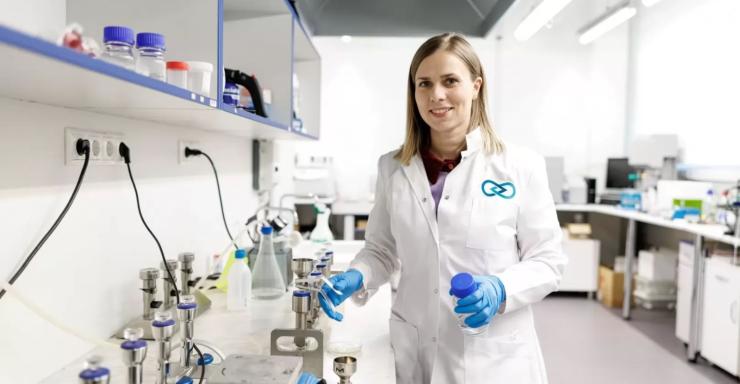On September 3, the Great Hall of the University of Latvia in Riga will host the European Innovation Council (EIC) "Scaling Club" Ambition Forum, bringing together around 300 European deep-tech leaders, companies, mentors, investors, and corporate partners. On September 4 and 5, the discussions on technology will continue with the European Hydrogen Valleys Investment Forum.

Deep-tech companies drive the development of innovation ecosystems, from academic research to venture capital attraction. Globally, such companies attract more than USD 60 billion in investments annually, with average growth rates around 20% per year. Attracting private investment in deep-tech is particularly important for enhancing Latvia's international competitiveness and attracting highly qualified talent. By developing this sector, Latvia can become a technology creator and a strong player in niches such as innovative materials, green energy, quantum technologies, drone solutions, and biotechnology.
"The deep-tech sector is strategically important for Latvia, as it can create significantly higher added value compared to traditional industries. Companies working in robotics, biotechnology, or quantum technologies, for example, are developing innovative products and solutions with investment and export potential that far exceeds traditional industries," emphasises Ieva Jāgere, Director of the Latvian Investment and Development Agency (LIAA).
The "EIC Scaling Club" is a community established by the European Innovation Council, uniting around 120 high-potential deep-tech companies from across Europe. Its goal is to ensure that at least 20% of these companies achieve unicorn status, with valuations of over one billion euros. Two companies from Latvia - Aerones and Naco Technologies - have already been selected and included in the club, and others also show strong potential. The "EIC Scaling Club" also attracts international investors and large corporations seeking partnerships with promising technology companies.
The "EIC Scaling Club" Ambition Forum will host around 300 international guests, including 120 selected club companies, 120 mentors from 10 thematic verticals, investors, and European Commission representatives. The European Commission funds the club, and its partners include Tech Tour, Bpifrance (EuroQuity), Hello Tomorrow, Tech.eu, EurA, and IESE Business School.
"The timing of the 'EIC Scaling Club' and the European Hydrogen Valleys Forum in Riga is particularly significant for us — we are currently opening the Naco Technologies Innovation Centre, which is developing the world's greenest and most advanced nanocoatings for the hydrogen industry. We are proud to be part of the prestigious EIC Scaling Club and an active player in the European green hydrogen ecosystem — we look forward to presenting our Innovation Centre to event guests," says Aleksandrs Parfinovičs, co-founder and CEO of Naco Technologies.
The European Hydrogen Valleys Investment Forum, funded by the EU's Recovery and Resilience Facility, will bring together more than 250 participants, including entrepreneurs, scientists, investors, policymakers, and other stakeholders. Discussions will focus on the development of hydrogen valleys and the creation of value chains. One of the forum's key objectives is to connect technology companies with investors. Around 30 selected companies will present their solutions to over 40 European and global investors specialising in green technologies.
Participants will include venture capital funds, tech companies, energy infrastructure developers, and representatives of the public sector. The event is supported by the Latvian Hydrogen Association, LIAA, and the University of Latvia, demonstrating Latvia's commitment to developing green innovation. The Latvian company Naco Technologies has been recognised as one of the 15 most promising participants in the European Hydrogen Valleys initiative, highlighting Latvia's potential in this field.
The goal of the Hydrogen Forum is to strengthen Latvia's position in the European hydrogen ecosystem by emphasising our renewable energy potential, strategic location, and technological capacity. It is an opportunity to attract investment, build international partnerships, and accelerate the development of hydrogen infrastructure. Currently, hydrogen technology initiatives are underway in the ports of Riga, Liepāja, and Ventspils, among others. The Elwind offshore wind park, a joint Latvian-Estonian project, will also play a key role in this sector by providing a stable supply of green energy.


